Do you want to learn how to fertilize container plants and have them produce as much or even more than those planted in the ground?
The “secret” is to follow a regular fertilizing routing to provide your plants with a consistent supply of nutrients throughout the growing season.
Unfortunately, not all fertilizers are created equally, and using the wrong combination at the wrong time can result in abnormal growth or poor yields.
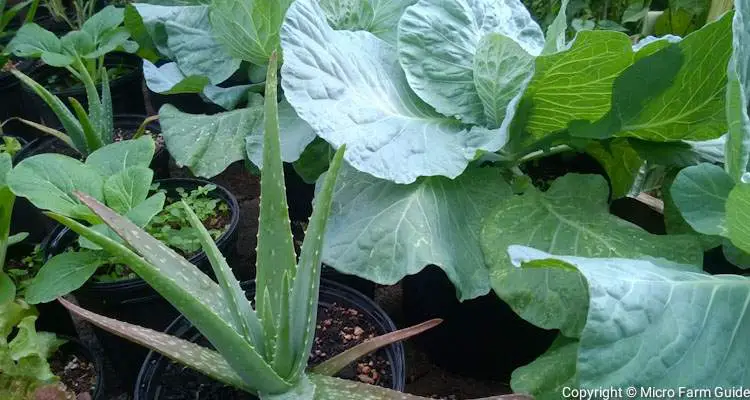
In this article, you will learn:
- Why Do Potted Plants Need Fertilizer?
- What Are The 3 Fertilizers That The Plant Needs?
- How To Know If Your Plants Need Fertilizer?
- What Are The Best Organic Fertilizers For Potted Plants?
- How Long Does Fertilizer Last In Containers?
- How Often To Fertilize Outdoor Potted Plants
- How To Apply Fertilizer To Potted Plants
- How To Store Fertilizer
Ok, there is a lot to cover. So to make things easier, you can use the links above to jump to a specific section or keep reading to learn everything you need about fertilizing container plants. Let’s get to it!
Why Do Potted Plants Need Fertilizer?
Potted plants need fertilizer since they only have access to the nutrients within their containers, which they tend to use quickly as they develop.
Unlike plants that grow in the ground, container plants do not have access to the mineral-rich soil and the network of microorganisms which extract these nutrients, making them available to plants.
As a result, potted plants rely on us to provide them with the essential nutrients via fertilizers to promote healthy growth and fruit production.
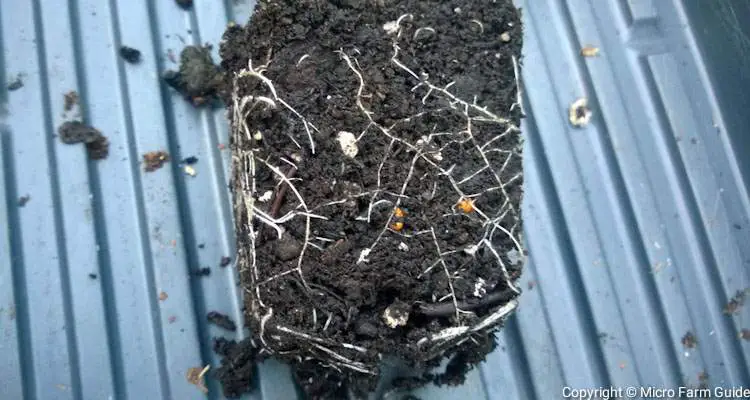
What Are The 3 Fertilizers That The Plant Needs?
The 3 main fertilizers plants need are Nitrogen, Phosphorus, and Potassium, which are better known as N.P.K.
These fertilizers are considered macronutrients since plants need them in large quantities to facilitate vegetative, roots, and fruit development.
Yet, plants also need other minerals and nutrients, such as calcium, manganese, and zinc, which assist with cell development and other functions.
Many of these micronutrients and trace minerals are available in the soil and made available to the plant through the actions of microorganisms.
However, in container gardening, we need to amend the soil with fertilizers to ensure a steady supply of the essential nutrients the plants need to thrive.
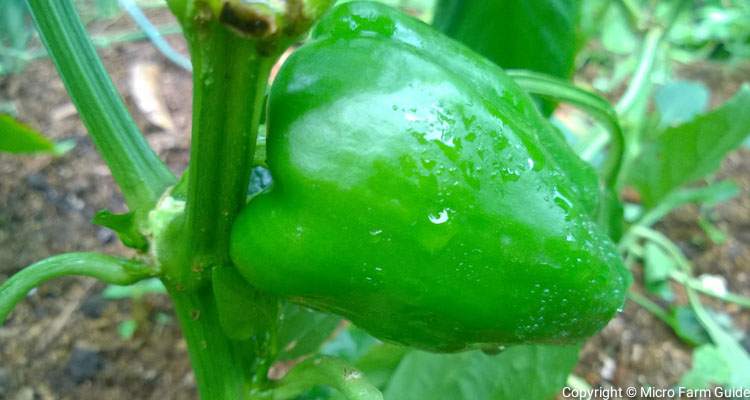
How Do I Know If My Plants Need Fertilizer?
The simplest way to tell if your plants need fertilizer is to compare it to what is expected for that particular plant. By doing this, you can identify abnormalities in growth and possible diseases.
Some signs of nutrient deficiencies include stunted growth, yellowing or general discoloration of the leaves, poor flowering, or fruit development.
In some cases, these can also be signs of environmental factors. For example, the yellowing of leaves can indicate nitrogen deficiency. Still, it can also occur if there is a lack of water or old age.
That said, if you are growing plants in pots, you will need to fertilize them more often than not. Ideally, you should use a fertilizer intended for the plant’s specific stage of growth. However, most all-purpose fertilizers work just as well.
For example, you can use a high nitrogen fertilizer such as Fish Amino Acid in the plant’s early vegetative growth stage, then switch to one high in potassium as it starts to flower.
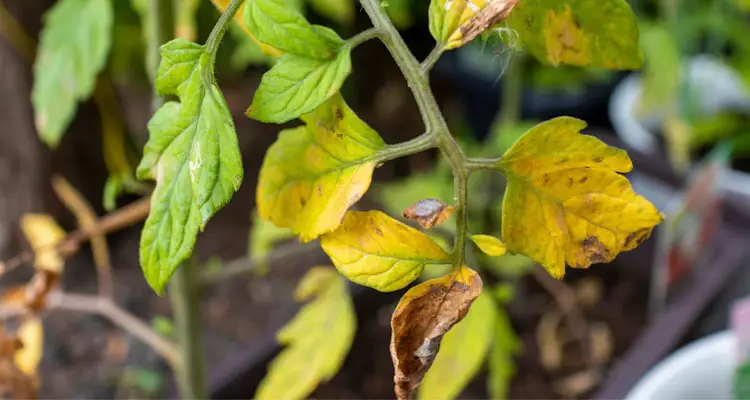
What Kind Of Fertilizer Do Potted Plants Use?
Potted plants can use both organic and synthetic fertilizers, provided they contain the nutrients needed to carry out their functions.
While I advocate using natural and organic fertilizers, we must acknowledge that all fertilizers are, in essence, chemical in nature.
That said, I still prefer to go the organic route and use a selection of homemade nutrient solutions and everyday products, some of which are not advised for use in the ground.
For example, I occasionally add Epsom salt to my containers with fruiting plants such as Peppers, Tomatoes, and Cucumbers. However, I do not use Magnesium Sulphate in my garden, even if it is derived from natural sources.
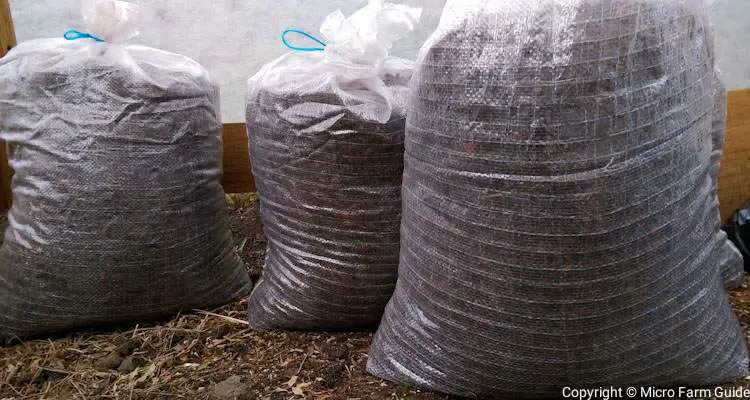
What Are The Best Organic Fertilizers For Potted Plants?
Natural Liquid Fertilizers are by far the best fertilizers for potted plants. They are made from various organic materials, including fish, manures, seaweed, and other ingredients found in your kitchen or garden.
They are easy to apply and readily absorbed by the plants. However, this also means that liquid fertilizers are easily washed away if there is a heavy downpour.
As a result, granular fertilizers are also added to container plants to provide a slow and steady supply of nutrients over time.
Homemade Compost can also be used for outdoor pots to supply plants with beneficial microorganisms and various nutrients.
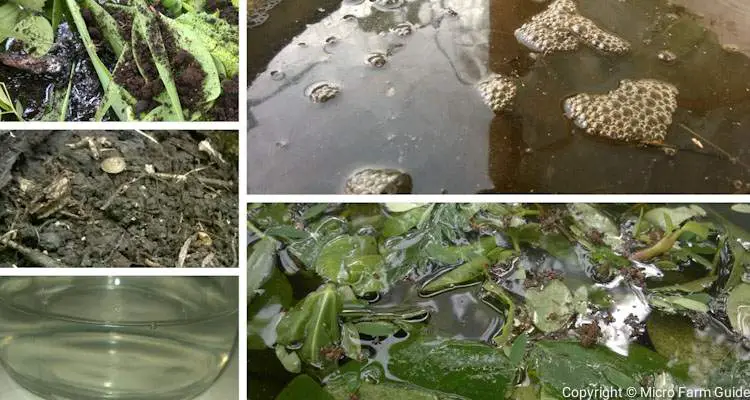
How Long Does Fertilizer Last In Containers?
Generally, Fertilizers can last several weeks in a container, depending on the type of fertilizer, composition of the potting soil, the pot size, type of plant, and the amount of water the pot received.
For example, a liquid fertilizer can easily be washed out of the potting mix if there is a heavy downpour. In contrast, a slow-release granular fertilizer can remain in the soil for several months despite the weather.
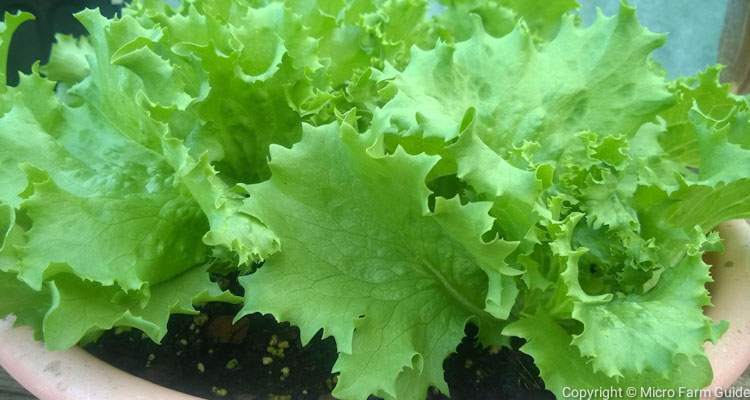
How Often To Fertilize Outdoor Potted Plants
Generally, you should apply a dilute liquid fertilizer to your potted plants once every 7 to 10 days and after heavy, prolonged rainfall. Whereas granular fertilizers and Compost should be applied every 4 to 6 weeks.
However, these are just general recommendations that should be adjusted to suit the plant’s needs based on the temperature, size, and stage of growth.
For example, a large flowering plant growing in the heat of the Summer will require more frequent fertilizer than a leafy green in Spring.
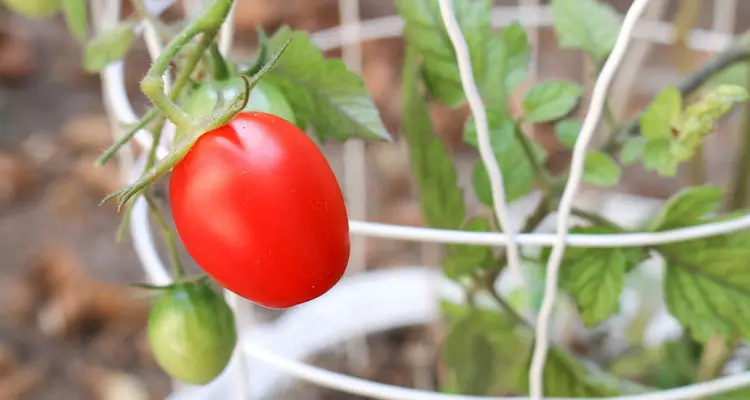
This can get complicated fast. As a result, it is best to create and stick to a regular fertilizer schedule to ensure your plants receive a continuous supply of nutrients throughout the growing season.
For instance, I usually apply double-diluted liquid fertilizer once a week and a layer of Compost or granular fertilizer once per month to my long-season plants.
How To Apply Fertilizer To Potted Plants
Generally, you should water container plants thoroughly and allow them to drain before applying fertilizer.
You need to dilute liquid fertilizers as instructed, then water the plants generously with the solution for about 5 seconds to ensure that it spreads throughout the growing media.
You can apply granular fertilizer as a surface dressing or mix it into the potting media during preparation. Either way, you must water it thoroughly after applying it to ensure the nutrients are available to the plants.
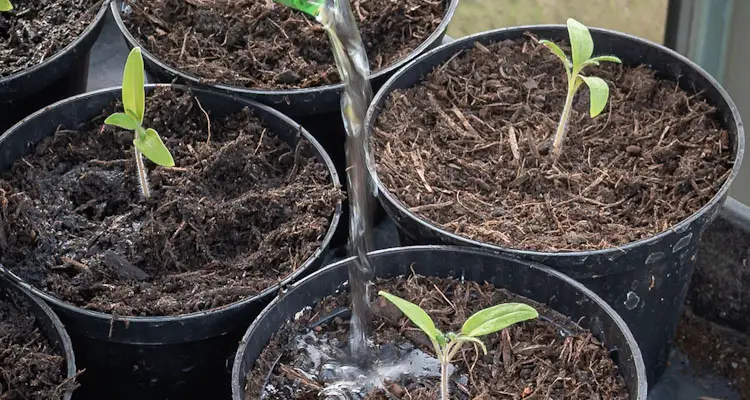
How To Store Fertilizer
Fertilizer should be stored in a cool, dry, well-ventilated location, preferably away from direct sunlight.
Using air-tight fertilizer storage containers for salt and granular fertilizers is best to protect them from excess moisture.
However, if this is unavailable, you should store the fertilizers in their original packaging, which is usually resealable.
Homemade liquid fertilizers can be bottled and stored in a well-ventilated cupboard. Just be careful when opening since they tend to build pressure over time.
Conclusion
In an ideal situation, plants can get all the nutrients they need through interaction with soil microorganisms.
However, most container gardening systems lack the ecosystem to facilitate this exchange. As a result, we need to supplement the necessary nutrients and minerals the plants need to thrive.
That said, we must be mindful that plants need more than just N.P.K. and choose fertilizers that supply them with a broad spectrum of macro, micro, and trace elements.
The exact type of fertilizer we choose to supplement our potted plants is a personal choice, so long as we make the best use of what we have and are content with our decision.
Remember, container gardens allow us to experiment freely without risk to the soil or the environment. So, see what works best for you and your plants. Will you be using organic, inorganic, or a combination of the two? Have fun!
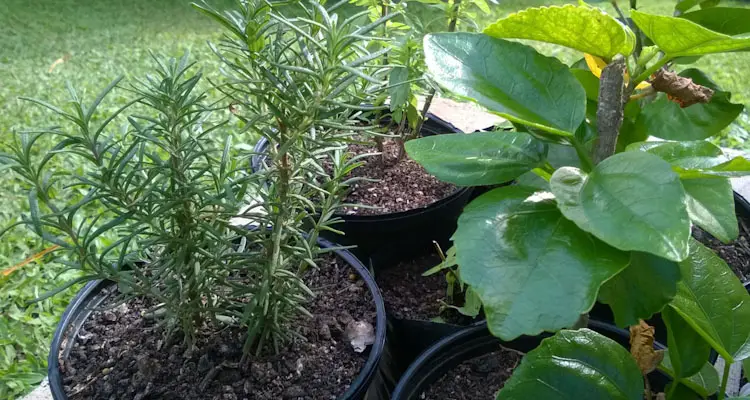
Related Questions
What are the best fertilizers for containers?
Ideally, you should use a balanced all-purpose fertilizer for container plants. These can be organic or synthetic, provided you keep in mind the intended use and location of the plants.
How do you fertilize potted plants?
You can fertilize potted plants using natural, organic, or synthetic fertilizers. The amount and frequency used will vary based on the plant’s needs and its growth stage.
How often should I fertilize my potted plants?
Generally, it is best to fertilize potted plants every 7 to 14 days, depending on the type of fertilizer, temperature, size, and type of plant.
